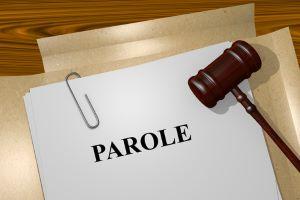What Should I Do if I Am Charged With Violating Probation or Parole?
 If you are convicted of criminal charges, you could be sentenced to probation, and depending on the circumstances of your situation, probation may be sentenced in lieu of jail time, or you may be subject to a period of probation after a jail sentence has been completed. While probation may not seem as serious as jail time, , it should not be taken lightly. The same type of seriousness applies if you have been released from your jail sentence early and are on parole. There are certain rules that you must abide by when you are on probation or parole. Violating any of the rules of your probation or parole can result in further consequences, including facing additional jail time or being required to serve the remainder of your jail sentence.
If you are convicted of criminal charges, you could be sentenced to probation, and depending on the circumstances of your situation, probation may be sentenced in lieu of jail time, or you may be subject to a period of probation after a jail sentence has been completed. While probation may not seem as serious as jail time, , it should not be taken lightly. The same type of seriousness applies if you have been released from your jail sentence early and are on parole. There are certain rules that you must abide by when you are on probation or parole. Violating any of the rules of your probation or parole can result in further consequences, including facing additional jail time or being required to serve the remainder of your jail sentence.
Conditions of Probation and Parole
If you are sentenced to probation, you will be placed under the supervision of the Connecticut Judicial Branch’s Court Support Services Division. If you are released on parole, you will be under the supervision of the Connecticut Board of Pardons and Paroles. Normal parole will allow you to be released from prison early if certain conditions are met. In some cases, you may be sentenced to a period of special parole, which must be completed following the completion of a jail sentence. Special parole may be imposed for any criminal offenses other than drug charges.
If you are released from prison on parole, or if you are sentenced to probation or special parole, there are certain rules that you must follow. The court can require offenders to:
- Maintain employment or pursue a course of study or vocational training
- Undergo medical or psychiatric treatment (sex offenders may be subject to special conditions, including sex offender treatment)
- Support dependents and meet other family obligations
- Pay restitution to victims of the crime
- Refrain from committing any federal or state crime
- Reside in a residential community center or halfway house
- Be subject to electronic monitoring
- Perform community service
- Satisfy any other condition that is directly related to rehabilitation
What Happens After a Probation or Parole Violation?
If you are suspected to have violated any condition of your probation, a warrant will be issued for your arrest. Once you have been arrested and informed of the violations you are accused of committing, you have the right to a hearing in front of a judge within 120 days after your arrest. Technically, this hearing is not a criminal trial, so you do not have many of the same rights afforded to you as you would in a criminal trial. It is crucial that an attorney attend the hearing with you, because the standard of evidence is lower than in a criminal trial. This means that the state only needs to have a preponderance of evidence showing that you violated your probation.
If you are suspected to have violated any conditions of your parole, you will be taken back into custody by your parole officer, and the Board of Pardons and Paroles will hold a hearing to decide the consequences. It is also highly recommended to have representation from an attorney at this hearing.
If the court finds that you have violated the terms of your probation or parole, there are a few things that could happen. According to Connecticut law, the court can:
- Continue your sentence of probation or parole
- Modify or make the terms of your probation or parole to be more strict
- Extend your period of probation or parole
- Revoke your term of probation or parole and order jail time
A Hartford, CT Probation Violation Defense Attorney Can Help
If you have been arrested for violating the terms of your probation or parole, you need to talk with a skilled Connecticut parole violation defense lawyer as soon as possible. If you are convicted of violating your probation or parole, you could face jail time or other punishments. At the Woolf & Ross Law Firm, LLC, we will do our best to help you protect your freedom and minimize the criminal consequences you may face. Call our office today at 860-290-8690 to schedule a free consultation.
Sources:
https://www.cga.ct.gov/current/pub/chap_952.htm#sec_53a-32
https://www.cga.ct.gov/current/pub/chap_961.htm#sec_54-125e






